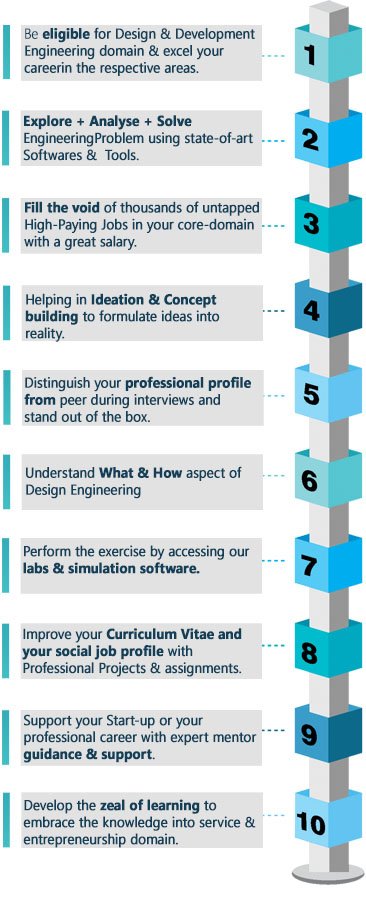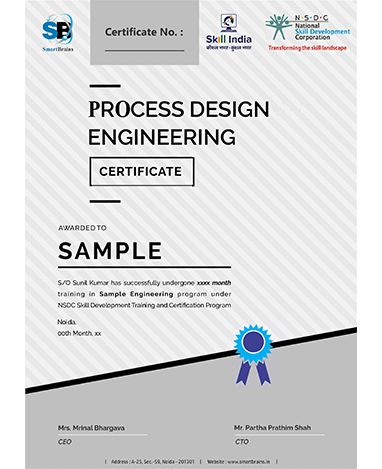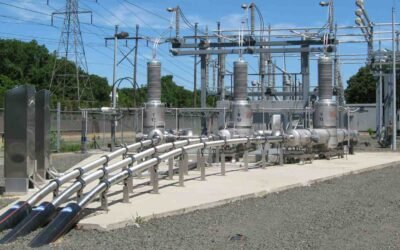About the Program
The objective of this PG Diploma course is to provide the candidates the Detail knowledge and skills in the Internet of Things (IoT) discipline to facilitate faster learning curves while on the job.
The explosive growth of the “Internet of Things” is changing our world and the rapid drop in price for typical IoT components is allowing people to innovate new designs and products at home. In this first class in the specialization, you will learn the importance of IoT in society, the current components of typical IoT devices and trends for the future. IoT design considerations, constraints, and interfacing between the physical world and your device will also be covered. You will also learn how to make design trade-offs between hardware and software. We’ll also cover key components of networking to ensure that students understand how to connect their device to the Internet. Please note that this course does not include discussion forums.
Learning objective
- Define the term “Internet of Things”
- State the technological trends which have led to IoT
- Describe the impact of IoT on society
- Define what an embedded system is in terms of its interface
- The architecture of the Internet of Things
- IoT components, devices, hardware and software requirements
- Various layers of IoT infrastructure
- IoT embedded systems and micro-controllers
- Working with Big Data and deploying Data Analytics
- Arduino and Raspberry Pi interface for IoT
- USB, HDMI and Ethernet protocols of IoT communication
- Controlling physical IoT devices like switches, motors, and sensors
- Programming for IoT components and systems
- Enumerate and describe the components of an embedded system
- Describe the interactions of embedded systems with the physical world
- Name the core hardware components most commonly used in IoT devices
- Describe the interaction between software and hardware in an IoT device
- Describe the role of an operating system to support software in an IoT device
- Explain the use of networking and basic networking hardware
- Describe the structure of the Internet
- Describe the meaning of a “network protocol”
- Explain MANETs and their relation to IoT
- IoT support, security, testing, compliance and data management
Program Highlights

About The Course

Course Modules
- Introduction to IoT
- Concepts and Terminology of The Internet of Things (IoT), History of IoT, Applications, Requirements of IoT, M2M/IoT standards, Components of IoT, IoT Enabling, Technologies
- Sensors, Actuators, Gateways, Local & Global Connectivity, IoT Platforms, Business Inferences IoT Building blocks
- Architecture, Sensing, Connectivity, Gateways, Processing, Software, Power, IOT Reference Architectures, Business Models, Challenges in IOT, Introduction to Node-Red, Visual Prototyping with Arduino and connectivity to IOT platforms.
- Hands-on IOT App with Smart Hardware
- What is the Internet of Things?
- Current technological trends and near future prospects
- The digital world, real world, and augmented world
- M2M communication and automation history
- Relation with embedded systems
- General introduction to Arduino, Raspberry Pi, and smart-wifi boards
- Introduction to IOT
- Why and How IOT Evolved?
- Industrial internet
- Evolution of deskless workforce
- TPM, OEE and various other approaches
- Understanding the IoT Ecosystem
- What is the IoT application?
- What are the basic elements/building blocks of IoT app?
- How are these blocks connected together?
- The systematic method to design IOT application
- Architecting our hands-on project
- Programming Technologies:- Programming Languages C
- Overview of C in view of IoT Devices, Pointers, Functions Arrays, Strings, Structures & Unions. Memory Allocation, Pre-processor, Linked Lists, Stacks & Queues, Sorting & Searching Techniques,
- Introduction to Python, Overview of Python in view of IoT, Scope, Data Types, Files, Functions, Modules & Packages, Standard Libraries, Data Structures, Oops Concepts
- Microcontrollers Programming:-End Devices
- Introduction of AVR, PIC & ARM Series Architecture, Registers, Operation modes, Overview of Instruction Set, Interrupt Management, Exception Handling, Timers, SDKs & IDEs for firmware development, Peripheral Programming (UART, GPIO, ADC, SPI, I2C, etc), Debugging techniques, CAN basics.
- Embedded Linux Platforms
- Introduction to Linux, Working with Commands Line, File System Hierarchy, vi Editor, Package Management, Administrative & Networking Essentials, Linux Internals (Process Management, Threads, File Handling, IPC), Working with Target Boards – Raspberry Pi, Beagle Bone Black etc., Native vs. Cross Building Applications, Supporting Libraries, Peripheral Management on Linux(UART, GPIO,ADC, SPI, I2C, etc)
- Edge Computing & Protocols:-IOT Communication needs, Terminology
- M2M, IoT, WOT, Communication standards, Communication models (Request-Response, Publish-Subscribe, etc), Communication Patterns (Telemetry, Inquiry, Status, Notifications), Data exchange formats, e.g.:- JSON, IOT Protocols – MQTT, CoAP, HTTP REST, Web Sockets, etc. Packet Formats, Client and Server implementations. Platform connectivity, resource registration & discovery. Significance of gateway design, characteristics, protocol bridging, implementations & case studies. Edge analytics at devices and gateways, Downsampling of data – aggregations, filters, Threshold prediction, Detecting Anomalies.
- Network Programming & Wireless Technologies
- Basics of wired & wireless communications, TCP/IP Protocol stack, an overview of Link, IP Layers, IPv4 & IPv6 basics, TCP, UDP Protocols & Socket Programming.
- Wireless Communication – WLAN(IEEE 802.11), Wi-Fi motes(ESP8266,CC3200 etc), Bluetooth Protocol Stack, Class & Smart Profiles(L2CAP,RFCOMM,GATT etc), BLE Motes(NRF5xx series ,TI CC26xx Series), BLE Beacons, IEEE 802.15.4 implementations, 6LowPAN, RPL Border Router
- Network Stack in Constrained OS
- Cellular Technologies – GSM, CDMA, GPRS, 3G, 4G/LTE, etc. Geo Tracking – GPS, NB-IoT, SigFox, FOTA.
- Data Management & Analytics
- Introduction to Database Management, SQL vs. NoSQL, Implementations, Data management with SQL
- Schema Design, CRUD operations, nested queries, aggregations, custom functions, MongoDB Query, Data analytics using Apache Spark Eco System, Streaming Analytics, Visual Analytics, Spark SQL, Machine Learning Libraries with Spark, Spark Streaming, IoT data analytics – JSON and sensor data with Apache Spark.
- Cloud Computing
- Cloud Computing basics, terminology, characteristics, services, cloud deployment
- Public, private environments, delivery models
- IaaS, PaaS, SaaS. Container Management, Introduction to Docker, Container, Container orchestration, Docker File, Docker-compose, Docker Swarm, Portainer, Platform Services for IoT Applications, Providers, Implementation support, Application Deployment using PaaS, case studies. , Distributed, Backend Messaging, Apache Kafka, Layer, Modern Service Models, Secure Communication, Cloud Security.
- Technological Aggregation & Case Studies:-Modern trends in IOT
- Wearable, industrial standards, Open Data Management & API, OPC-UA, and Modbus. Case studies, connected use cases in Real-life/Thematic areas
- Smart Homes/Buildings, Smart Cities, Smart Industry, and Smart Medical care, Smart Automation, etc.
- Projects
Course Certificates
SmartBrains is associated with The National Skill Development Corporation (NSDC) as the Training and Certification partner for various job oriented training programs across various sectors including Oil & Gas, Power, Renewable Energy, Hydrocarbon, IT & ITs, Electronics, Telecom, Agriculture, Life science etc. offering assessment based Training & certifications for a gamut of job profile.
Who should join?
- Working professionals in Domains: Embedded System Design Engineering.
- Students (Computer Science, Electrical & Electronics Engineering) who want to develop their career in Embedded System Design & Internet of Things.

For Corporate queries
A-25, Sector-59, Noida (UP),India
Pin Code-201301
Connect with Program Advisor
training@smartbrains.com
+91 8955560560 | +91 9891108700
www.smartbrains.com
Nodal Centers
Noida, Dehradun
Guwahati, Pune
Course Features
- Lecture 0
- Quiz 0
- Duration 6 Months
- Skill level All levels
- Language English
- Students 0
- Assessments Yes






